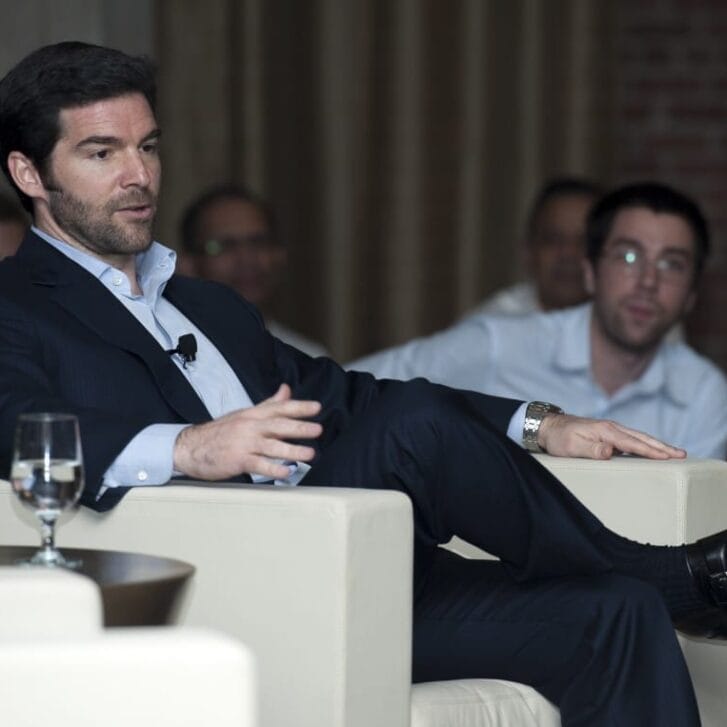One of the scariest times in Bazaarvoice’s history was when I learned that our head of recruiting at the time had decided to stop checking references. I found out about this when one of the people we had hired started to engage in activities that I would rather not disclose here. I probed on how that happened when we were so diligent at checking references.
“We stopped checking references,” I was told.
I couldn’t believe it. I asked why.
“Because they don’t really tell you anything—they are all provided by the candidate.”
I then spent the next 30 minutes telling stories about how important it was to always check references, and specifically how to probe. I also talked about the importance of going off script, and of finding references that candidates didn’t provide. We reverted to our original diligent reference-checking practice immediately.
It can be very dangerous not to check references, especially when you are interviewing board members or raising money from new investors. I’m convinced that the higher the position the more important reference checking becomes.
Let me tell you two horror stories so that you can understand why I’m so passionate about this.
1. I know a chief executive who served on the advisory board of a startup that had great potential and millions of dollars in funding. But the board of directors had lost confidence in the startup’s founding CEO and decided to recruit a new one. The person they chose to be their new CEO was a management-level person, not an executive, from the chief executive’s company. Embarrassed because they were hiring someone away from that advisory board member’s company, they did not check the new CEO candidate’s references with the chief executive and went ahead and hired him. The new CEO then drove out the founders of the business and the business hasn’t recovered.
The chief executive advisory board member confronted the Board of Director members about this. They expressed embarrassment but also expressed confidence that they had made the right decision (at that time). The chief executive told them that they had made a huge mistake, and that their candidate had not performing well in their management duties at his company. The candidate had been a brilliant individual contributor, especially in the area of sales, but had failed to perform well as a manager. (This happens with a lot of brilliant individual contributors, and will be the subject of a future Lucky7 post). Over time, every one of the people that they had hired while they were a manager at the advisory board member’s company was let go for performance issues.
2. I once got a call asking for a reference for a public-company CEO candidate that I had worked with in the past. The candidate had not given me a heads-up that he was looking. The person on the other end was an executive recruiter, and I remember thinking, “Cool, they are going off script, and I’m a very honest reference.” The recruiter started to ask me reference check questions, and I quickly became disenchanted. I started to give the recruiter some of the cons to be a balanced, authentic reference, but they would quickly change the subject back to the pros, of which there were many. It was clear to me that the recruiter just wanted to check the boxes and get the job done. Anything they learned from me on the cons they would have to report back, and so the recruiter would rather not hear them at all.
And then it hit me: I couldn’t believe that a public-company board of directors had delegated the task of checking the references on a new CEO to a recruiter. Did no one on the board have the time? What about the chairman? What about the governance committee? It was a bad sign, and although the person they recruited was pretty good, at least in my opinion, the company didn’t last for very long.
The bottom line is that checking references is a critical activity and therefore it should be a cherished, celebrated practice. You are, after all, recruiting people to join your company, where you presumably really care and spend most of your waking time. There is a financial cost, an opportunity cost and a cultural cost to carefully consider, especially if they don’t work out. It isn’t a foolproof practice. Nothing is. But it is a very important one. And don’t forget that it is a lot easier to let go of a team member who isn’t performing than it is to let go of an investor or board member. You can get star-struck with someone’s credentials and awards. The more they have accomplished, the more tempting it is to overlook their references.
But please follow Cook’s advice [Scott Cook, co-founder and initial CEO of Intuit] and really dig in. The higher the level of the candidate, the more you time you should spend checking. Go off script. You’ll be thankful that you did.
What are your best reference-checking practices? What horror stories would you like to share? Please comment below. We would all like to hear from you and get a dialog going about this.
Editor’s note: Read Part 1 of Brett Hurt’s “Going off Script With References.” And be sure to visit Brett’s Lucky7 blog and the original version of this post to read the many comments that it generated there.


























